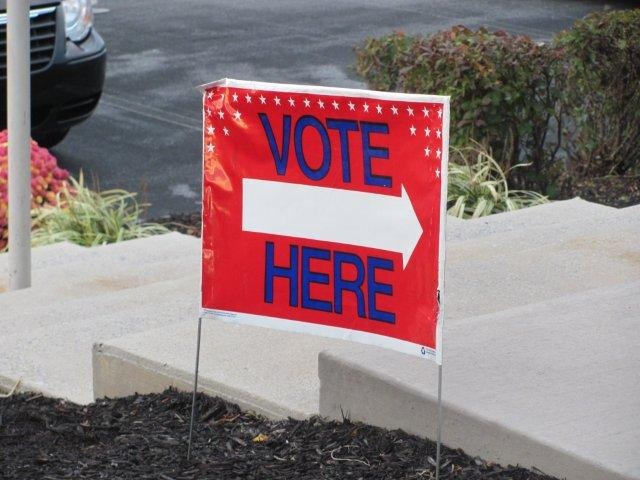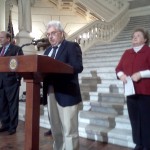The Constitution allows each state the ability to determine how its electors are assigned in presidential elections. In 2012, Pennsylvania will have 20-electoral votes. How they are awarded… is now the subject of debate. Under the current system, all 20 would be awarded to the winner of PA’s popular vote, but some believe there is a better way to do it.

State Senator Dominic Pileggi (R-Del.)
State Senate Republican Leader Dominic Pileggi (R-Delaware) is backing a plan that would divvy up the votes based on election results in each of the state’s 18 congressional districts, plus two votes being awarded to the winner of PA’s popular vote. “This proposal is designed to more closely align Pennsylvania’s Electoral College vote with the popular vote in the state,” says Pileggi spokesman Erik Arneson.
Governor Tom Corbett indicated his support for the plan on Radio PA’s monthly Ask the Governor program. “I think it more closely reflects the vote across the state of Pennsylvania,” Corbett says, “Many people complain about the electoral process and that people are disenfranchised. This makes the state much more competitive across the entire state.”
This is the first time such a plan has been offered in Pennsylvania, and Franklin & Marshall College political science professor Terry Madonna believes there would be consequences. For instance, he believes Pennsylvania’s relevance – in practical terms – would be reduced to 5 – 7 electoral votes. “That that means that other states, with larger electoral votes, that are competitive, will get far more attention,” Madonna says, adding that this system would not have changed the outcome of any election in modern history, had Pennsylvania been using it.
Pennsylvania and 47 other states currently follow the winner-take-all model; only Nebraska and Maine follow the model being put forth by the Senate Republican Leader.
As Democrats have won Pennsylvania in each of the past five presidential elections, many Democrats are calling it a political power grab. “This is exactly the behavior that is turning the public against politicians,” Pennsylvania Democratic Party chairman Jim Burn said in a statement.
But Erik Arneson points out that the new system would actually benefit President Barack Obama, if a Republican takes Pennsylvania in 2012, as some pundits predict. While telling us that it’s about fairness, not politics, Arneson also points out that the plan has been criticized from both sides of the aisle.
Senator Pileggi is currently circulating a co-sponsorship memo. The bill should be officially introduced in a few weeks, and they’ve already requested a committee hearing. After the hearing, Arneson says, they will decide the next course of action.










